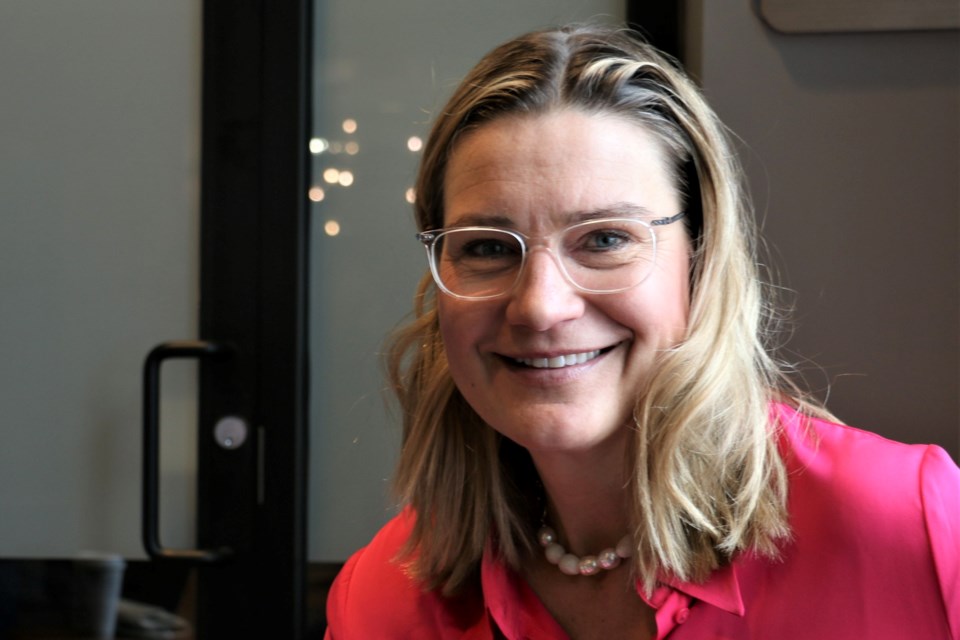The president of Ontario Medical Association (OMA) said Sudbury's Health Sciences North (HSN) hospital is too small and the health care staff is too depleted to deliver adequate health care.
Dr. Rose Zacharias, the president of the OMA toured Sudbury health facilities and met with physicians on Tuesday and Wednesday.
In an interview with Sudbury.com, Zacharias said she is seeing first hand the challenges facing health-care providers in Northern Ontario.
"So we recognize the extreme health-care challenges that exist particularly in the North with extreme health care challenges. We know that there is a lack of access to primary care. People across Ontario don't have family doctors, but particularly in northern rural and remote communities. We have a doctor shortage and a health care team provider shortage," said Zacharias.
"So even when it comes to clinics and hospitals, we're short staffed, and hospitals are crowded."
Zacharias did not provide comparator data on staffing to support her argument the shortage is impacting care, but said her impression was not favourable.
"So even when it comes to clinics and hospitals, we're short staffed, and hospitals are crowded. I visited Health Sciences North yesterday, the building, the facility, the extensions of the buildings. Too small, not enough physical space, and the teams are depleted of staff to really deliver adequate health care. So we know that the doctor shortage and health care team provider burnout is an issue," she said.
The other problem Zacharias noticed was the backlog in the HSN emergency room, where nearly all the beds were occupied by admitted patients.
"When I visited the hospital yesterday, I saw that in the Emergency Department of 36 beds, 35 people were admitted in those beds, but had nowhere to go elsewhere in the hospital. And so it backlogs the emergency department. People in the hospital who are occupying those acute care, medical beds many of them could be discharged to long term care or a hospice bed or home care if it was safe to do so. But we don't have those supports in place."
This means the backlogs in the emergency room just continue and people just get sicker, said Zacharias.
"This really breaks a doctor's heart because we have a moral conviction to care for people and to deliver high-quality good care. And in a broken system like this. It's hard to do so."
Zacharias also commented on the opioid crisis in Sudbury, saying it is known that Sudbury has one of the worst rates of opioid overdose deaths in Ontario. She said more dedicated government spending on mental health is required.
"We also know there needs to be investment around mental health and addictions care. We know that in the North, there's the highest rate per capita of opioid related deaths. And it's unacceptable that we are not able to address that and care for particularly vulnerable people who need it, obviously."
Zacharias was quick to add she sees hope on the horizon. She said the OMA believes the government is listening and in fact is on board with the OMA's Prescription for Ontario, a comprehensive five-point plan for better health care, first announced in October 2021.
She added that the OMA is encouraged by the government's idea of creating specialized surgical centres where patients can get elective surgeries such as hip and knee replacements, cataract eye-surgery and hernia repairs. She said this has become a serious issue because instead of waiting weeks or months for this sort of treatment, patients were told it would take one or two years.
Zacharias said she is pleased to see the surgical centres move ahead because the backlog in elective surgeries was not only affecting people's physical health, but their mental health as well.
Her tour of Sudbury also included a visit to NOSM University (formerly the Northern Ontario School of Medicine) where she said she was sure to continue to be impressed with the commitment of the teachers and the students there.
Zacharias said she was there to listen.
"What we know is that there's a commitment to an increase in medical school spots and residency positions. I want to ask today if the program feels equipped to support that increase. We know that doctors are needed to train doctors. And so I think there'll be challenges when it comes to the burnout that doctors are feeling and the clinical responsibilities, the documentation expectations that really brings doctors away from direct patient care," said Zacharias.
"All these things are distractions and take time, and yet are requirements, and it interferes I think sometimes with doctors doing what they want to do. So when it comes to doctor education, I want to know how is the school planning for that education delivery? And what's the morale like amongst the physicians, amongst the students, amongst the the professors and the teachers and the administrators and the leaders at the Northern Ontario School of Medicine University?"
Len Gillis covers health care and mining for Sudbury.com.
